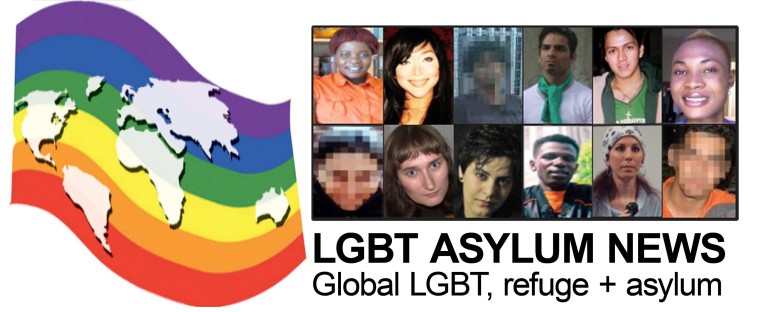By Shega A'Mula
As Albania prepares to legalise gay marriage, Kosovo’s government says such a move is not even on the radar.
Arian is an attractive young man who lives in Prishtina. His phone rings during our coffee break and he insists he must take it, since it is his partner. However, most do not know that his partner is a man.
“Sorry, he gets mad when I don’t pick up, you know the way relationships go,” he says.
Young men and woman constantly stroll down the streets hand in hand, share intimate dinners in the city’s many restaurants, and openly flirt in the bars and cafes. But when Arian goes out for a drink with his boyfriend they appear just friends - homosexuality remains a taboo in Kosovo.
“Our religion outlaws homosexuality, and extremists beat gays. I’ve been physically and emotionally abused so I keep the fact that I am gay to myself,” Arian says.
With the Albanian government’s latest proposal for legalising same-sex marriages, and gay pride cancelled in Belgrade this weekend, gay rights have become a hot topic across the Balkans. But the debate has been strangely muted in Kosovo.
And the government has no plans to open up the issue. Government spokesperson Memli Krasniqi told Balkan Insight that this issue doesn’t fall into the government’s current or even future priorities.
“This issue is not relevant in Kosovo’s social context. It does not exist as a primary, secondary or tertiary issue to focus on. It is not in the government’s margins of importance, unless we consider looking at the law on marriage,” he said.
As far as gay rights are concerned, Krasniqi said that “the government supports the law against discrimination, which includes discrimination against them”.
However, Arber Nuhiu from the human rights organisation Elysium, which protects the rights of Lesbian, Gay, Bisexual and Transgender individuals, told Balkan Insight that despite the law against discrimination, many gay men and lesbians face abuse and prejudice.
“The constitution, thankfully, has a law against discrimination on the grounds of sexual orientation, but the government does not directly support or fund this cause. They haven’t financially supported our organisation at all,” he said.
Sabrie Kamberi, an official from Kosovo Police’s information office, told Balkan Insight that there have been cases involving physical abuse reported to them.
“Every so often we have cases of violence against homosexual individuals. But we do assure them that they are offered the same protection as any other citizen, and we support the rights that they have,” she said.
The fear of violence and discrimination that the gay community lives with, the vast majority of the LGBT community interviewed by Balkan Insight said they chose not to disclose their sexual orientation.
The only time they revealed their sexual orientation was at private parties, organised by close friends or the Elysium organisation.
“I can reveal that I am gay only at parties organised by Elysium or behind closed doors atother private gatherings and parties,” admitted Arian.
Nuhiu stated that Elysium is the only organisation in the country that directly provides support to lesbians and gay men.
“We organise small parties, and we have a drop-in centre…where gay people can feel free to talk about their problems and be open about their feelings,” he said, adding that there were no gay bars or clubs anywhere in the country.
“Elysium is an environment where they can connect, make friends and sometimes begin a relationship,” he added.
Nuhiu admits that very few women come to the drop-in centre, something he blames on the inequality between genders in the Kosovo.
“Lesbians are more hidden because of double discrimination. Society already discriminates against them because of their gender, let alone their sexual orientation,” he said.
Vlora, a young bisexual from Prishtina, has experienced this double discrimination. Vlora is currently dating a man she says she cares about, but she admits that if she could, she would be with a woman.
“I feel like society forces me to date men, even though I get butterflies in my stomach when an attractive women passes by, I can’t help it,” she said.
When Vlora has told people about her sexual orientation, they have often used it against her.
“People think I just want to be interesting and seem sexier to men if I’m with a woman, or they think I’m into threesomes and all I want to do is experiment,” she explained.
She has accepted that prejudice means cannot live an open lesbian life in Pristina.
“I imagine falling in love with a girl, but when I know that I can’t hold her hand or kiss her and say ‘this is my girl!’, I try to avoid it,” she said, adding that although she considers herself a lesbian, she is forced to be a bisexual in order to date men, and be perceived as normal.
“I have many friends I’ve met at Elysium, but not one of them is openly gay. I don’t know one person who admits that they are gay to anyone other than their close friends,” she said.
It seems that much work remains to be done before people in this marginalised community feel comfortable revealing their true identity.
The names used in this story have been changed to protect the identity of those interviewed.







 Join our page
Join our page

Great Blog!!! Congrats
ReplyDeleteThis is Awful and Stupid.
ReplyDeleteI'm a Straight Muslim Guy of Albanian Origin and I Support Gay Marriage and LGBT Rights.
I've been and Still a victim of Bully.
I've been and Still bullied by Young Albanian Men, Ages 14-21. They Called me "Gay" and "Peder". :(
I Felt very Upset, Nervous and Sad.
Then, in a Cafe Bar. 2 Nasty Gypsies from Albania come and harassed me. called me "Gay" and "Faggot". I Felt very Nervous and Upset. :(
Most Homophobic Creatures in the World is Gypsies.
Gypsies are way more homophobic than Albanians.